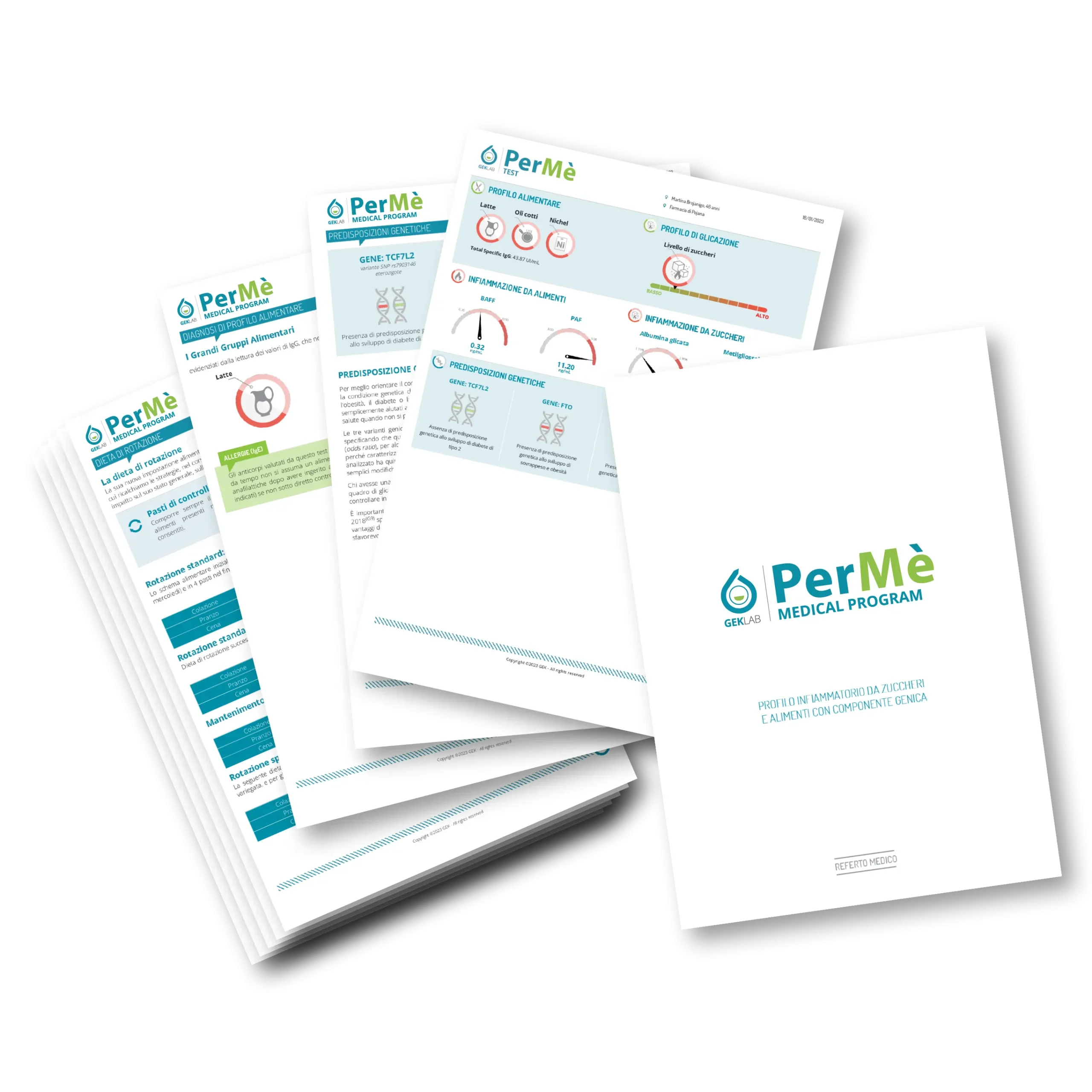
Depression is one of the most common mental disorders in Italy, affecting approximately 5–10% of the population at a clinical level. Estimates indicate that more than 3 million Italians live with depressive symptoms, and it is believed that around 20% of the population will experience at least one depressive episode during their lifetime. These numbers continue to rise, fueled by factors related to stress, genetics, and, above all, changes in our lifestyles and eating habits.
Depression, however, is not just a psychological condition: it is also closely linked to the physical body, particularly to metabolism and nutrition, which play a crucial role in its onset and management.
In this article, we will explore how these factors interact and how we can address them in an integrated way to improve our psychological well-being.
Depression and metabolism: an underestimated connection
Metabolism is the process by which the body converts nutrients into energy. When metabolism is disrupted, imbalances can occur that negatively affect our mental state. Metabolic disorders, such as insulin resistance, have been closely linked to the onset of depression.
Depression is not just a psychological condition: it is also closely connected to the physical body, particularly to metabolism and nutrition, which play a crucial role in its onset and management.
Description for this block. Use this space for describing your block. Any text will do. Description for this block. You can use this space for describing your block.
Insulin resistance, in which the body does not respond properly to insulin, leads to a buildup of sugar in the blood, with harmful effects not only on physical health but also on mental well-being. A study published in the Journal of Clinical Endocrinology and Metabolism found that the disruption of hormonal mechanisms involved in metabolism can promote the onset of depressive symptoms. Metabolism does not function solely as an energy management system, but also as a system that directly influences brain activity, altering neurotransmitters and mood.
High blood sugar and triglycerides: how nutrition affects mood.
The link between high sugar levels, triglycerides, and depression is now well documented. A diet high in sugar and refined carbohydrates can cause blood sugar fluctuations, which disrupt insulin levels and negatively affect the brain’s neurotransmitter regulation of mood, promoting the development of depressive symptoms. These blood sugar swings not only weaken mood but also increase inflammation—another factor that negatively impacts mental health. Studies, including those published in the Journal of Affective Disorders, have shown that chronic inflammation can impair brain function by reducing the production of essential chemicals for psychological well-being, such as serotonin.
A healthy diet is essential for preventing and treating depression. Certain nutrients play a key role in the production of neurotransmitters that regulate mood, such as serotonin, which depends on tryptophan—an amino acid found in foods like turkey, pumpkin seeds, legumes, and nuts. In addition, healthy fats such as omega-3s, found in oily fish and walnuts, are vital for brain health, helping to reduce inflammation and improve cognitive function. Fiber, found in whole grains, vegetables, and fruits, is equally important as it helps maintain stable blood sugar levels, preventing glycemic spikes that can trigger mood swings and supporting a healthy gut microbiota.
It’s also important to know that what we eat has a direct impact on our sleep, which in turn deeply influences mood and mental health. Foods rich in tryptophan—such as dairy products, bananas, and sesame seeds—can promote the production of melatonin, the hormone that regulates the sleep-wake cycle, thereby improving sleep quality and reducing depressive symptoms. On the other hand, foods high in refined sugars and caffeine, especially when consumed in the afternoon or evening, can interfere with sleep and worsen depressive symptoms. Alcohol, although initially relaxing, can disrupt sleep and reduce sleep quality, contributing to a worsening of depressive symptoms.
Finally, sleep quality depends not only on diet but also on lifestyle. It’s essential to follow a regular bedtime routine and include relaxation techniques in your weekly schedule, such as meditation or yoga. Last but not least, regular physical exercise plays a key role—it creates a “healthy” physical tiredness and boosts the production of endorphins, enhancing both mood and sleep quality.
PerMé: a medical program to address inflammation and depression
Chronic inflammation has been identified as one of the main factors contributing to depression, as it can disrupt neurochemical processes in the brain, weakening mood regulation and causing both physical and mental fatigue that help sustain a depressive state. The PerMé medical program, through a self-administered capillary blood test, provides detailed insights into how the body reacts to certain foods, revealing potential excesses and repetitive dietary patterns that may trigger inflammation.
Once the test has been completed, the next step is to follow the personalized diet outlined in the medical report, with the goal of reducing inflammation, improving metabolism, restoring proper energy levels, and helping to rebalance mood—potentially alongside other therapies. In this way, nutrition not only enhances physical health but also becomes a powerful ally in the fight against depression.
Prevention and treatment: the role of lifestyle
Depression is a disorder that requires an integrated approach. In addition to a balanced diet, it is essential to adopt a lifestyle that promotes both mental and physical well-being. Regular physical exercise, for example, stimulates the production of positive neurotransmitters such as endorphins and serotonin, helping to reduce depressive symptoms. Stress management through relaxation techniques like meditation, along with maintaining a healthy sleep routine, is also crucial.
Moreover, a lifestyle that includes an anti-inflammatory diet rich in essential nutrients, quality sleep, regular physical activity, and effective stress management can make a significant difference in both the treatment and prevention of depression. Consulting a doctor or nutritionist for a personalized nutrition plan—potentially supported by tests like PerMé—can provide concrete support in improving both psychological and physical health in a holistic way.
Conclusion
Depression is a complex disorder involving multiple factors. A balanced diet, healthy metabolism, and proper lifestyle are fundamental for both preventing and treating this condition. Targeted interventions—such as using the PerMé medical program to identify food-related inflammation and elevated glycation levels—can be the first step toward improving psychological well-being through mindful and personalized dietary choices. Managing depression should not be limited to psychological or pharmacological treatments alone; it should also include a holistic approach that takes into account the role of diet and individual metabolism.
Edited by The scientific editorial Team GEK Lab




